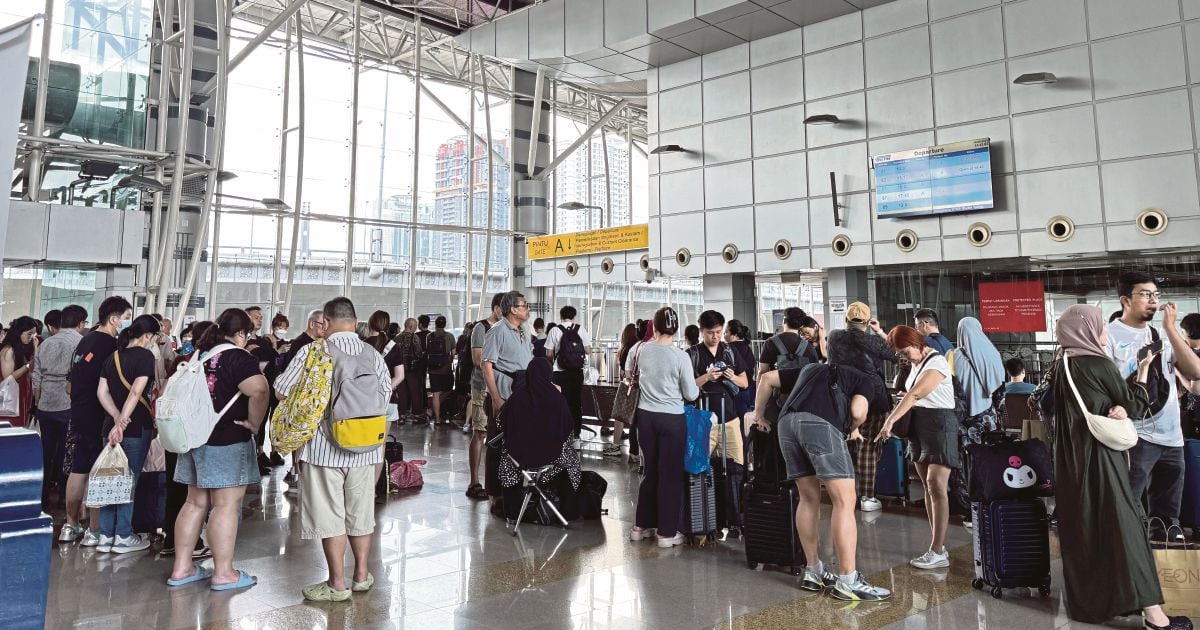Rogue Immigration officers and syndicates at the Johor-Singapore land checkpoints are taking advantage of an overwhelmed system to run the “flying passport” ruse, an Immigration source and a security expert told the New Straits Times.
They said while standard operating procedures (SOPs) looked good on paper, manpower shortage was one of the main causes why syndicates could operate despite the security measures in place.
“When five officers are clearing 500 passports an hour, when scanners are down and cameras cannot cover every lane, something has to give. And that is when syndicates move in.
“It’s no longer just a few bad apples. It’s a system buckling under pressure, from traffic volume, economic desperation and tactical neglect,” one source said.
The source was commenting on the internal immigration security loophole known as the “flying passport” ruse, which has exposed deep cracks in Malaysia’s border control, especially at the Johor-Singapore Causeway, where more than 250,000 travellers move daily.
Despite biometric verification, closed-circuit television camera surveillance and system restrictions in place, insiders continue to exploit operational blind spots.
The modus operandi is simple but dangerous — a passport is handed to a runner, discreetly passed to a complicit officer, stamped and cleared.
It is all done without the physical presence of the passport holder.
The system is sometimes reported as being “offline”, CCTV operators are rotated and blind spots appear. Supervisory audits, which are often post-event, rarely catch ghost entries in real time.
“The passport arrives but the person does not. And yet, the passport is stamped. That’s how deep the problem runs,” the source said.
Even in cases where there is no baggage or biometric record, these unauthorised clearances often go unnoticed.
Syndicate-linked officers cite “system errors” or override protocols under the pretext of exceptional cases.
Internal SOPs, including bag checks, access control and officer rotations, are bypassed, especially during peak congestion.
Manual override powers, originally intended for emergencies, have become a convenient cover.
“It’s not about the lack of technology. It’s about the lack of accountability at critical pressure points.”
The source said some audit trails failed to cross-reference biometric data, allowing ghost entries to pass unflagged.
Warning signs have gone unheeded. These include passports stamped without corresponding biometric or facial recognition logs.
Another ruse often used is that the “system is down”, which requires the officer to do it manually and this is when the passports are stamped without its holders present.
“These are red flags that should trigger alerts. But no one’s connecting the dots,” the source revealed.
To contain the breach, urgent reforms are needed, said one source, who is also a security expert.
Among them are real-time AI verification of facial data linked to passport logs, mandatory dual-officer clearance with live supervisory authorisation, as well as ghost-entry detection systems that flag stamped records without biometric matches.
The rotation of officers across terminals, not just shifts, to break collusion chains, was another reform suggested.
“The ‘flying passport’ ruse is a failure of enforcement discipline, exploited with surgical precision.
“And unless plugged, it will cost us more than just reputational damage. It will cost us control,” the source said.
© New Straits Times Press (M) Bhd






